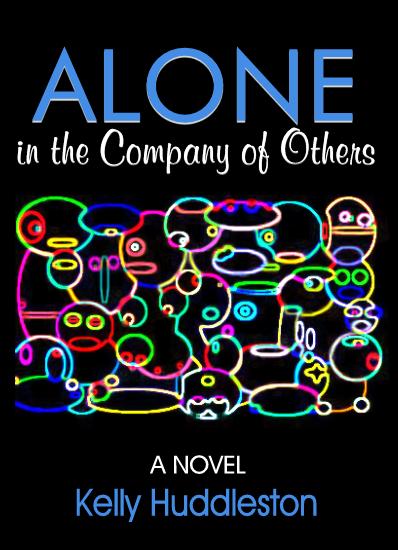© 2013 Moronic Ox Literary Journal - Escape Media Publishers / Open Books
Moronic Ox Literary and Cultural Journal - Escape Media Publishers / Open Books
Novel Excerpts, Short Stories, Poetry, Multimedia, Current Affairs, Book Reviews, Photo Essays, Visual Arts Submissions
Advertise your book, CD, or cause in the 'Ox'
Editor's Notebook
We need more stories about the 99%, told by the 99%
Guest Editor Kelly Huddleston
After the banking crisis in 2008 and the resulting Great Recession, a number of industry-coined “credit crunch movies” appeared on the big screen—films like Michael Moore’s Capitalism: A Love Story, Up in the Air starring George Clooney and The Company Men with Ben Affleck and Tommy Lee Jones. The publishing world was buzzing about “recession lit”—social issues novels that dealt specifically with the Great Recession. The most notable example is American Rust by Philip Meyer, a novel “evoking John Steinbeck’s novels of restless lives during the Great Depression.”
The era of credit crunch films and recession lit had begun, many people predicted. Proof of this seemed evident to me during the final scene of Moore’s Capitalism: A Love Story. Taping off Wall Street as a crime scene, Moore rallies the audience to step up and take action.
"We live in the richest country in the world,” Moore says. “We all deserve a decent job, healthcare, a good education, a home to call our own. We all deserve FDR's dream.” He goes on to say: “You know, I can't really do this anymore ... unless those of you who are watching this want to join me. I hope you will. And please—speed it up."
As a writer, I took this to mean writing stories about what had been done to our nation and what it meant to people like my friends, my family and me. I envisioned other writers doing the same. I thought I would be reading new novels featuring main characters dealing with foreclosed homes, lost jobs, no healthcare, and bleak futures. And coming soon to a theater near me? Movies based on the heroic efforts of union workers a la Norma Rae and Silkwood, but with a modern spin, such as a minimum-wage employee at a chain store behemoth demanding better pay for herself and her fellow workers, no matter what the cost, financially or otherwise.
Michael Moore lost money on Capitalism: A Love Story. Even with its roster of stars, The Company Men tanked at the box office. Up In The Air starring George Clooney fared better with six Oscar nominations and a gross of over $160 million worldwide, yet the cynic in me thinks its popularity had more to do with Clooney than the storyline. American Rust proved popular when published, yet has since faded into the background.
It has been five years and counting since the fall of Lehman Brothers, and there have been only a handful of stories in films and books with plots focusing on America’s ongoing financial crisis and the devastating consequences it has had and will continue to have on the American people. So who is to blame for the near absence of stories with such timely and important themes?
Some blame the audience. In an article in The Week published in 2008, Katey Rich from Cinema Blend said that credit crunch films “may become the equivalent of Iraq war movies—timely and important, but too depressing and reminiscent of audiences’ actual troubles at home.” In the same article Guy Bennett from Wealth Creation Tips stated that history proves “when the economy falls the demand for escapist entertainment rises” and that during the Great Depression “25% of American families had no income and 40% of factory workers were unemployed”, however, box office sales “soared 22%.”
Enter Gossip Girls, Keeping up with the Kardashians, Twilight and Fifty Shades of Grey—just a few examples of modern-day American television shows, books and films that persistently focus on the lives of the 1% and relate in no shape or form to the real issues facing ordinary Americans. Follow Rich and Bennett’s argument alone and it would be easy to surmise why stories like these are so popular in our culture.
Who wants to watch a television show about the plight of poor black kids in a radically underfunded urban city school system? That’s too depressing. Instead let’s watch a group of wealthy, white teenage girls in trendy Manhattan. A reality show focused on a hard-working family trying to create a family business that will not only support them but help improve their local community? Forget it. Much more appealing is the scripted tale of an extremely wealthy family doing little more than flaunting their wealth and relishing in mega consumerism. While the newly-wed vampires Bella and Edward, and the newly-wed billionaire couple Christian and Anastasia (one half of whom is at best a narcissistic personality disorder, but never-mind this snafu, he is, after all, a billionaire!), enjoy an opulent, diamond-studded, forever ridiculously unrealistic romantic and luxurious life at the end of their respective Twilight saga and Fifty Shades of Grey trilogy, their real life devotional followers, mostly teenage girls soon to reach adulthood, will likely struggle with strangulating debt to pay for college—if they’re lucky—and a severe virgin/whore complex that will allow men to devalue them for the rest of their lives.
And this is what the American public wants to read and watch, over and over again? No, I don’t think so. At least not entirely. The “No More Kardashians” petition was started on November 2, 2011 by a fed-up viewer named Cyndy Snider from Colorado. Snider said in a statement to the press about the petition: “We feel that these shows are mostly staged and place an emphasis on vanity, greed, promiscuity, vulgarity and over-the-top conspicuous consumption.” The petition reached 180,037 signatures, Snider received multiple death threats, and on April 4, 2012, it was reported in the Huffington Post that E! renewed the show for three more years, paying the family a record-breaking $40 million.
E! is owned by NBCUniversal, which is owned by Comcast Corporation. Comcast is one of ten companies that own, lock, stock and barrel, TV, radio and over one half of print media in America. The other nine companies include Washington Post Co., Walt Disney Company, Viacom, Tribune Company, Time Warner, Inc., News Corp., Gannett Co., CBS Corporation and Bain Capital/Thomas H. Lee Partners (Clear Channel).
The last on the list, Bain Capital, was founded by Mitt Romney, who, as everyone knows, was the Republican nominee in the last presidential election. Just like the Kardashian clan, Romney received millions of dollars from Bain Capital for his campaign. In hindsight it’s no wonder Romney attacked Jim Lehrer, Big Bird and all of PBS during his campaign, promising, if he were to win the White House, to stop subsidies for America’s only publically funded television and radio station. Even though PBS comprises only 0.01 percent of the federal budget, if it were up to Romney then Bain Capital and other corporations would totally own our media—which it all but does anyway.
Our story-telling culture focuses on the lives of the 1% because it is owned by the 1%. The purpose of our media in its present form is to benefit the stockholders of huge corporations, present a one-sided view of the economic and social issues, praise capitalism, and distract and discourage ordinary citizens from exploring the diversionary intent of today’s media, which more or less totally ignores the real issues in the lives of everyday people.
We need more stories about the 99%, told by the 99%. We don’t own the press, Hollywood, TV or radio, however we do still have—at least for the time being—the Internet. It’s there that the real stories are being told—on YouTube, in eBooks and online newspapers and journals. Thanks to social media, these stories are shared not just in America but around the world. It is the one and only free medium left where anyone can share their story, truthfully and uncensored.
Joseph Campbell said, "There is no humanity in the state. What runs the world is economics and politics, and they have nothing to do with the spiritual life. So we are left with this void. It's the job of the artist to create these new myths. Myths come from the artists."
Let’s get started.
------------------------------------------------------------------------------------------------------------------
Kelly Huddleston is a writer and publisher. Her latest social issues novel, A Week with Fiona Wonder, examines healthcare, minimum wage jobs, big box stores, class warfare, economic injustice, and celebrity culture. More information at http://www.open-bks.com/library/moderns/a-week-with-fiona-wonder/about-the-book.html
About the book
It is exactly one week until sixteen-year-old Mercy Swimmer is to play out a dream scenario: to spend an entire week with movie star Fiona Wonder, the prize awarded to the winner of a contest staged by a teen magazine.
Mercy is kind and compassionate and always tries to see the best in everybody, even when those around her do not respond similarly. For example, her mother’s snippy, hot-tempered friend Nikki is a kleptomaniac who constantly belittles her boyfriend. Her best friend Valerie has anger issues and a weight problem. Beautiful but cold Lady Redding, Valerie’s mother, feels entitled to everything even as others go without. And Mercy’s mother, a severe asthmatic who works two menial jobs in a “dead mall”, seems to care more about Fiona Wonder and Mercy’s upcoming week with her than the pressing issues in their own lives.
Everything is on track for Mercy’s upcoming week with Fiona Wonder, but when her mother’s asthma flairs up, Mercy’s world turns upside down and she is faced with a decision that will ultimately challenge her own capacity for compassion.
A Week with Fiona Wonder shines an intense light upon the dire consequences of social exclusivity and suggests the alternatives of inclusion, empathy and, indeed, mercy.
Other Novels by
Kelly Huddleston




